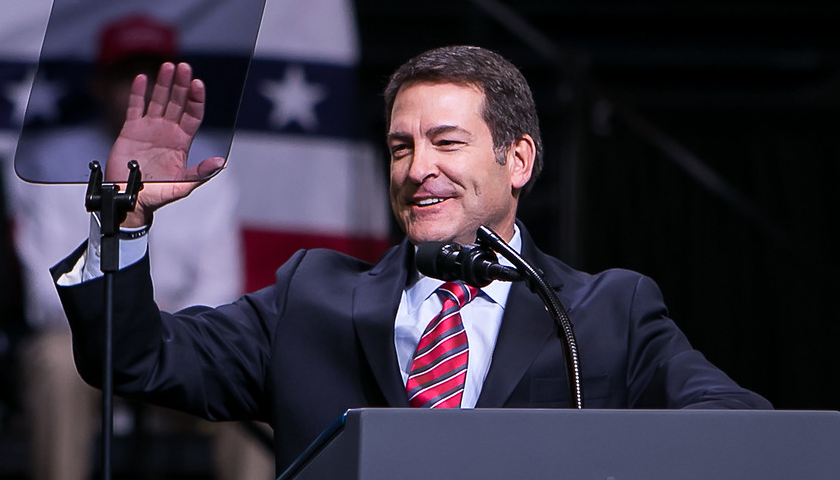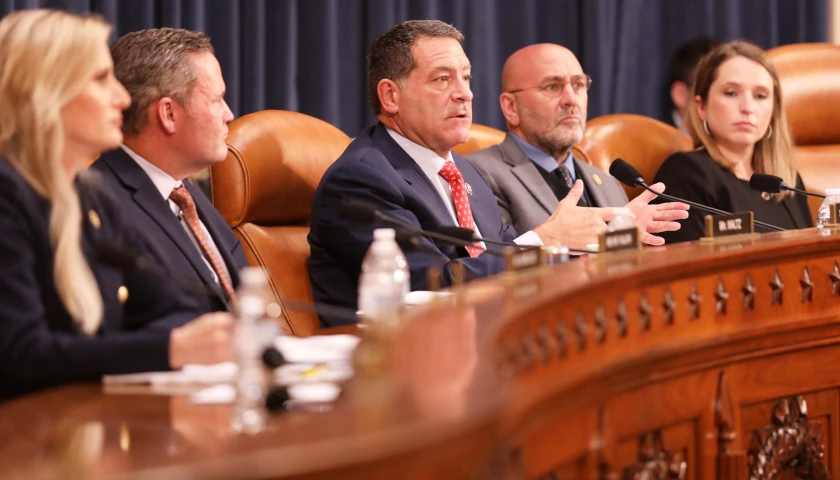In today’s climate, the vitriol that Tennessee state Senator Mark Green faced for his orthodox Christian beliefs while being considered for Army secretary would surprise few.
But there also was a conspicuous lack of a vigorous defense from his fellow Republicans and even his fellow Southern Baptists. With few exceptions, there was little in the way of significant pushback against the torrent of rage against Green’s past statements on LGBT issues, Islam and other topics of concern to biblically-minded Christians and other conservatives.
Under intense pressure, Green withdrew his name from consideration May 5.
“Green’s nomination drew immediate backlash from Democrats, and even some Republicans,” reported McClatchy DC Bureau. “His support was lukewarm at best, and few in Washington showed an appetite to defend his controversial comments.”
Raymond Baker, a Franklin resident and retired Republican political consultant, told The Tennessee Star that what really hurt Green was that Tennessee’s two Republican U.S. senators, Bob Corker and Lamar Alexander, did not fight hard enough on his behalf when the going got tough.
Corker and Alexander, along with other “so-called Republican leaders” long ago sold their soul to liberal interest groups, Baker said.
After President Trump nominated Green for the post, the national media publicized Green’s past statements and policy positions showing support for traditional marriage and biologically-based gender identity. Also coming to light were past concerns he voiced about the teaching of Islam in public schools and his criticism of theories of evolution that don’t allow room for the possibility of a divine creator.
The flood of criticism drowned out discussion of Green’s own decorated Army career and his positions on other matters related to the military.
Green is a favorite of conservative Tennesseans, who hope that he will return to his earlier plans of running for governor.
So shrill was the national hysteria about Green that a writer for Slate wrote that “Green’s political ambitions reveal a full-scale messianic complex that manifests itself as a dangerous willingness to exploit the military to advance an unvarnished view of straight, white Christian supremacy.” The piece went on to say that conservative Christians are interested in “spreading a Christian version of the Sharia law that the far right insists Muslims seek to impose on America.”
Left out of consideration in the Slate piece, as well other coverage of the controversy, are the rights Christians have to assert their views in our constitutional republic, one founded, no less, by men who were influenced by Christian norms. Also left unsaid was that until very recently, believing that marriage should be between a man and a woman and that anatomy determines whether one is male or female, were not beliefs only of the “far right.” Also missing was a serious discussion about whether Islamic ideas are truly compatible with Western ones.
What happened to Green reflects the growing marginalization of orthodox Christian views in politics and the public square as well as the disarray and disagreements within Christian communities about how to address it. There also is evidence of a growing progressive movement within the church.
The Southern Baptist Ethics and Religious Liberty Commission, the political arm of the Southern Baptist Convention, said nothing about the controversy engulfing Green, even though the Clarksville senator is a Southern Baptist who doesn’t live far from the ERLC’s Nashville office. A spokesman for the ERLC did not return The Star’s emails and phone messages for comment for this story.
The ERLC also has an office in Washington, D.C. Its website says:
Through its Washington D.C. office, the ERLC secures a Southern Baptist presence on Capitol Hill and represents the views and concerns of the over 16 million members of the Southern Baptist Convention.
ERLC staff and interns monitor key public policy issues and track developments in the legislative, executive, and judicial branches of the federal government. Staffers communicate from Capitol Hill to constituents throughout the country, encouraging them to contact their elected representatives when necessary.
The ERLC issued no press statements and published no Facebook posts alerting its audience to the controversy surrounding Green, nor did it publish anything regarding the larger implications of the controversy for orthodox Christians, regardless of whether they agree with all of Green’s political views, which include tough stances on immigration.
Earlier this year, there was speculation that Russell Moore, the head of the ERLC, might lose his job after conservatives in the denomination complained about his harsh criticism of Trump supporters, promotion of progressive immigration policies and filing of an amicus brief on behalf of a New Jersey mosque involved in a zoning dispute. Conservatives have also criticized his downplaying of the importance of politics even as he is political himself. In addition, some believe the ERLC has become too cozy with LGBT groups for the sake of friendly outreach.
Leaders of the Southern Baptist Convention have stood by Moore, who lately has been keeping a relatively low profile.
Among Southern Baptist and other conservative churches and organizations, there are struggles currently to preserve doctrinal integrity and to develop a coherent response to a culture becoming untethered from Christian and traditional roots. Some insist that Christians should focus primarily on home and church to shore up Christian belief for some idealized future time when a sufficient number of robust Christians can exert influence. Meanwhile, for progressives with no patience for orthodox Christian views, the time to get organized is now, raising questions about how much freedom Christians will have in the future to be an influence in government and culture.
Baker, the Franklin retired political consultant, says many Christians have become too passive and mostly just want a “warm and fuzzy” feeling on Sunday morning and don’t want to rock the boat.
Baker, who attends a church in Franklin affiliated with the conservative Presbyterian Church in America (PCA), says many either do not fully understand, or do not want to advocate for, the idea that the Bible contains teachings that are “accurate and true” and that should be used regularly to influence the culture. Christians don’t want to be politically incorrect, he says.
“Christians do not stand up for their beliefs,” Baker said. “We cower in the corner.”
Rosaria Butterfield, a former lesbian professor and activist who is now a Christian author and speaker, raised similar concerns when she spoke at a PCA church in Nashville in October. She told a small crowd at Grace Presbyterian Church that Christians need to wise up about the changes happening in the country and within the church and said unaware Christians are “sleepwalking to Babylon.”
A growing number of conservative Christians are now finding themselves in battles they once believed would be confined to mainline denominations. On April 27, the faculty at Samford University, a Southern Baptist school in Alabama, voted to approve a pro-LGBT student group. The final decision rests with the board of trustees.
Conservative Southern Baptist writer Denny Burk referred in a blog post this week to the writings of David Gushee, a former religion professor at Union University, a Southern Baptist school in Jackson, Tennessee. Gushee still considers himself a Christian but is now pro-LGBT and says there can be no middle ground. One that point, Burk agrees, even though he finds himself on the other side.
“It is time for folks on both sides of the debate to come to terms with just how much of a watershed this issue is,” Burk said. “The evangelical movement is facing a moment of crisis over this issue. We are about to find out who is for real and who isn’t.”






[…] Via https://tennesseestar.com/2017/05/13/the-smearing-of-mark-green-and-what-it-means-for-christians/ […]